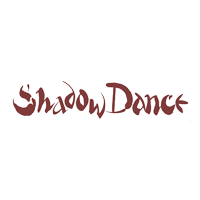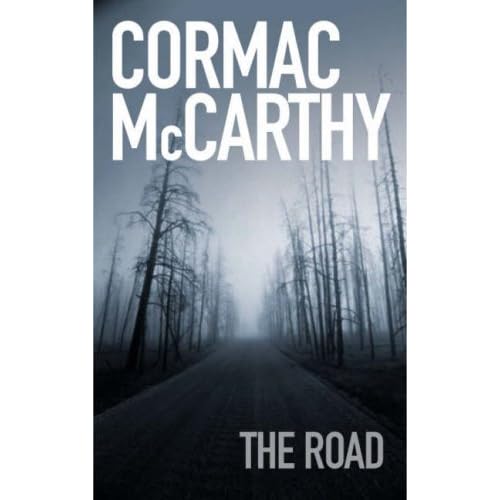Ето моите:
Where Late the Sweet Birds Sang на Kate Wilhelm
- Spoiler: show
Великолепна и силно атмосферична история, разделена на три части, които се развиват по различно време (с доста големи времеви скокове една от друга) и заедно описват картината първо на краха на човешката раса, а после на новото изолирано общество, което възниква от клонингите на първоначалните оцелели. Страхотна книга, тъпкана с идеи - както психологически, така и сюжетни.The Sumner family can read the signs: the droughts and floods, the blighted crops, the shortages, the rampant diseases and plagues, and, above all, the increasing sterility all point to one thing. Their isolated farm in the Appalachian Mountains gives them the ideal place to survive the coming breakdown, and their wealth and know-how gives them the means. Men and women must clone themselves for humanity to survive. But what then?
The Road на Кормак Макарти
- Spoiler: show
Мисля, че достатъчно съм говорил за книгата в ТОЗИ ТОПИК, няма нужда да се повтарям.An extraordinary, compelling and frightening novel examining the relationship between a father and son wandering a post-apocalyptic world in search of sanctuary. It's stark and bleak, even by McCarthy standards, and yet is probably the most emotionally raw of all his novels.
Stand on Zanzibar на Джон Брънър
- Spoiler: show
За този пък чудовищен шедьовър съм писал в рубриката Непреведено в последния брой, така че също няма да се повтарям.Thirty-year old predictions have a habit of going stale, but not John Brunner's startling panoramic view of the year 2010. Even where he got the future we almost inhabit wrong, he understood where things were oing--"Conincidence You weren't paying attention to the other half of what was going on"--and his world of Artificial Intelligence, gene-engineering, psychedelics, government-sponsored murder and brainwashing is frighteningly enough like our own. Constantly panning from a few individuals and their stories to the chatter of the media and sudden chunks of crucial text, Stand on Zanzibar was a ground-breaking novel in which Brunner broke wide open the stylistic and narrative conventions of SF, and set the agenda for the next decades. Packed with memorable characters--the computer Shalmaneser, the incestuous racist Clodard family, Presidents and newscasters--and sudden flashes of insight from rebel sociologist Chad Mulligan. "Rumour Believe all you hear. Your world may not be a better one than the one the blocks live in but it'll be a sight more vivid." Stand on Zanzibar is a masterpiece of speculative sociological SF, which some have described as a nightmare vision and others as a possible world better than what we are likely to get.
Добавям и две поредици, от които едната към момента тук сме я чели само аз и Емо, а другата - май само аз, поне в оригинал (Емо я цикли в момента):
The Prince of Nothing Trilogy на R. Scott Bakker
- Spoiler: show
Едно от най-интелигентните и смислени епични фентъзита, които съм чел, но и едно от по-трудно достъпните, защото авторът използва доста философия и интроспекции на героите. Историята обаче е феноменална (за съжаление обхваща и трите книги - нито една не може да се чете самостоятелно), а сцените с магия са хендс даун най-добре написаните във фентъзи изобщо. Плюс, че е класическо епик фентъзи, където лошите са извънземни генетици с космически корабA score of centuries has passed since the First Apocalypse and the thoughts of men have turned, inevitably, to more worldly concerns...A veteran sorcerer and spy seeks news of an ancient enemy. A military genius plots to conquer the known world for his Emperor but dreams of the throne for himself. The spiritual leader of the Thousand Temples seeks a Holy War to cleanse the land of the infidel. An exiled barbarian chieftain seeks vengeance against the man who disgraced him. And into this world steps a man like no other, seeking to bind all - man and woman, emperor and slave - to his own mysterious ends. But the fate of men - even great men - means little when the world itself may soon be torn asunder. Behind the politics, beneath the religious fervour, a dark and ancient evil is reawakening. After two thousand years, the No-God is returning. The Second Apocalypse is nigh. And one cannot raise walls against what has been forgotten...
The Book of the New Sun на Джийн Улф
- Spoiler: show
Една от най... "специалните" поредици, които съм чел, написана от поне в моя читателски опит най-добрият стилист в жанра, че и извън него. Трудно е да се опише кое точно е великото тук - историята е едновременно нищо особено, но и страхотно заплетена и интересна. Светът е зашеметяващ - едновременно чужд и далечен, но и нашият си, дори със забравеното му име. Усещането за древност, което Улф създава (червеното умиращо слънце, заради което небето дори денем е индигово синьо и покрито със звезди, руините, пръснати навсякъде, космическите кораби, върнали се след хилядолетия, за да открият свят, където вече липсва технологията, нужна за приземяванео им...) е почти физически осезаемо. Фантастичните идеи, използвани в чеирите книги, могат да ти кръстосат погледа, а езикът, на който е написана поредицата, е нещо... значимо. Но може би най-невероятното качество на Книга на новото слънце е фактът, че Севериан води повествованието от първо лице, но ти никога не си сигурен дали наистина той ти казва всичко и дали не те лъже в прав текст. Смесицата между сън и реалност, лъжа и истина е страхотна.Recently voted the greatest fantasy of all time, after The Lord of the Rings and The Hobbit, Gene Wolfe's The Book of the New Sun is an extraordinary epic, set a million years in the future, on an Earth transformed in mysterious and wondrous ways, in a time when our present culture is no longer even a memory. Severian, the central character, is a torturer, exiled from his guild after falling in love with one of his victims, and journeying to the distant city of Thrax, armed with his ancient executioner's sword, Terminus Est.
------
Толкоз засега, надявам се да има и други участници тук, освен мен












